- Meet Chacruna at Psychedelic Science 2025 - May 27, 2025
- Psychedelics and Attachment: Fundamentals, Implications, and New Frontiers - May 16, 2025
- Development Outreach Internship (OPEN) - May 6, 2025
July 2nd – October 15th, 2024, 10:30am-12pm PDT/1pm-3pm EST
Price $1,100
Price $560 for CE credits
CE Credits Offered: 28 total
This course will be composed of a series of independent lectures taught by the Chacruna Institute’s team and affiliates. It will lay out the foundation of the use of sacred plants through historical, cultural, indigenous, ‘traditional’ and contemporary lenses. We will explore topics such as shamanism in Amazonia, peyote use among the Wixárika, psilocybin use among the Mazatec, iboga in Africa, and many other cultural practices amongst other groups. We will discuss and analyze critical social issues such as globalization, tourism, cultural appropriation, commodification, patents, reciprocity, conservation, legality, ethics, sexual abuse, practitioner’s training and more. The course will create bridges between the worlds of ceremonies and psychedelic therapies. Students will learn how to incorporate this knowledge into their professional practices – either clinical or social science research, work clients or ceremonial circles – as well as their personal lives. Through multiple perspectives and the rich histories and cultures of psychedelic plant medicines, students will be able to deepen their understanding of the expanding future of psychedelic plant medicines in ways that are equitable, safe, and just, and ways we can give back to and honor the cultures from which these practices stem. The course will be taught from an anthropological viewpoint that considers different cultures and peoples worthy of respect and considers their own perspective and values.
Student Learning Objectives
At the end of the program, participants will be better able to…
- Discuss how historical attitudes about sacred plants has influenced our contemporary understanding of psychedelics
- Critique how different interpretations of plant knowledge have reinforced power dynamics
- Describe the history of oppression of indigenous religion by European missionaries
- Analyze the etymology and intellectual history and of the term “shaman”
- Compile geographic, political, and cultural context in order to compare Wixarika peyote uses with the plant’s uses in other regions and communities
- Explain how the global circulation and consumption of Indigenous sacred plants and cultures create social and environmental impacts on endemic territories
- Describe in detail the different forms of contemporary iboga and ibogaine use
- Compare different forms of ibogaine treatment and iboga rituals regarding their management of health risks
- Apply anthropological concepts to better understand ritualized practices with psilocybin mushrooms
- Analyze certain problematic tropes of Mazatec curanderos and ceremony
- Describe the conservation status of commonly used naturally occurring psychedelics
- List efforts which are underway for preserving these medicines by indigenous people and local communities
- Explain the current legal field around psychedelics
- Discuss the contours of the religious defenses available for the use of psychedelics in the United States
- Describe how intellectual property laws have been used to both protect and to undermine the protection of Indigenous rights
- Use intellectual property laws to protect Indigenous rights
- Explain the connections between colonialism and peyotism in the United States and analyze how these connections inform current debates regarding the legalization of peyote
- Describe the difference between racial and political classifications in the United States and explain why “racial” challenges to the Native American Church’s peyote exemption have failed
- Analyze the archaeological evidence on the ritual use of psychedelics in Mesoamerica
- Compare the different codices, sculptures and artifacts regarding the ritual uses of sacred plants
- Describe the neocolonial aspects of philanthropy, Nagoya Protocol, access-and-benefit sharing, and their relevance to reciprocity and psychedelic plant medicines for local communities, practitioners, patients, business leaders, investors, conservationists and researchers
- Discuss how unequal exchange affects Indigenous territories connected to international trade, and the cultural-economic factors alienating the psychedelic community from the human and environmental costs of the status quo
- Critique how their own assumptions about gender and sexuality may play out in their conceptions about the ayahuasca plant, the dietas practiced around it, and its shamans and ritual facilitators
- Discuss the prevalence of sexual abuse within ayahuasca-using traditions and the steps being taken to mitigate this phenomenon, as well as the reasons it exists
- Discuss ethical considerations for practitioners and participants in connection with sacramental ceremonies
- Create ethical guidelines for sacred plant medicine communities
- Compare and analyze the different elements of traditional uses of sacred plant medicines versus the modern western practice of psychedelic-assisted therapy
- Explain and analyze misconceptions related to the notions of set & setting and integration often discussed within the psychedelic field
Information on Continuing Education Credits for Health Professionals
- CE credits for psychologists are provided by the Spiritual Competency Academy (SCA) which is co-sponsoring this program. The Spiritual Competency Academy is approved by the American Psychological Association to sponsor continuing education for psychologists. Spiritual Competency Academy maintains responsibility for this program and its content.
- The California Board of Behavioral Sciences accepts CE credits for LCSW, LPCC, LEP, and LMFT license renewal for programs offered by approved sponsors of CE by the American Psychological Association.
- LCSW, LPCC, LEP, and LMFTs, and other mental health professionals from states other than California need to check with their state licensing board as to whether or not they accept programs offered by approved sponsors of CE by the American Psychological Association.
- SCA is approved by the California Board of Registered Nursing (BRN Provider CEP16887) for licensed nurses in California. RNs must retain their certificate of attendance for 4 years after the course concludes.
- For questions about receiving your Certificate of Attendance, contact [email protected]
For questions about CE, contact Spiritual Competency Academy at [email protected].
CE Credit Requirements
- Student must be in attendance with their camera on for the entirety of the class session
- Student must be actively participating in the class session (asking questions, contributing to discussion, etc.)
- Student must fill out an evaluation and assessment form at the end of the course, which will be provided by Chacruna
- Collective CE credits will be awarded at the end of the course given that all of the above requirements are met
*please note that you must purchase a ticket for CE credits on Eventbrite in order to receive CE credits
*please note that if you miss a class, you will not be awarded any CE credits and you cannot be refunded for CE credits
*please note that the first and last class do not count towards CE credits
Chacruna Certificate Requirements
At the end of the course, students will have the option to receive a certificate from Chacruna for the completion of this course. In order to receive this certificate, students must complete one of the following options:
A. Submit a final individual paper of 1,800 to 2,000 words, following Chacruna’s Chronicles Guidelines (the best papers will be selected to be published on the Chacruna site) *please note that the 2,000 word count should include footnotes and references; papers that go beyond 2,000 total words will not be accepted.
B. Submit a final group paper consisting of 2,000 words per person (i.e. if there are two people writing the paper, it should be a total of 4,000 words; if there are three people writing the paper, it should be a total of 6,000 words) *please note that the 2,000 word count per person should include footnotes and references; papers that go beyond 2,000 total words will not be accepted.
C. Submit a paper with internal reflection of what you have learned throughout this course
D. Pitch another specific proposal to submit (i.e. mini-documentary, video lecture, creation of a podcast.)
E. Students will have the option to do an art project related to the contents of the course
F. Students will have the option to conduct a “Family History.” This would consist of the student interviewing their family members to contextualize their life and experience, to understand their roots, and also talk about their local community/ lands/ social environment where they came from and/or are located
*Students will also have the option to opt out of receiving the certificate.
* The project submitted must be unique and created specifically for the course; you cannot submit a project that you created previously or submitted elsewhere.
Class Recordings and Lecture Slides Policy
Recordings of the lectures will be sent to the students a week before the class is scheduled to take place.
Lecture slides from the classes may be provided to the students at each professor’s discretion. We encourage everyone to come to each class in-person and on time as we cannot guarantee providing these resources in all circumstances.
You can find more information to Frequently Asked Questions here.
Course Structure
- Students will watch the lecture on their own time
- There will be a live 1.5 hour discussion on Zoom with the professor the following week
Refund Policy click here
Classes
Click on the class to read the description
Class One – Introduction
Tuesday, July 2nd, 2024, 10:30am–12pm PDT/1:30pm-3pm EST
Professors: Dr. Lígia Duque Platero and Dr. Bia Labate
In this initial class, students will introduce themselves to others in the course, be introduced to the professors and their backgrounds, and gain an understanding of the curriculum and program. Students will leave with preparation for the following classes being taught and a general understanding of the topics that will be discussed throughout the course.
Class Two – Historical Overview of Sacred Plants in the Americas
Tuesday, July 9th, 2024, 10:30am–12pm PDT/1:30pm-3pm EST
Professor: Dr. Nidia Olvera
This class introduces students to a rich and diverse history of plant-based medicines around the globe, focusing on developments in the Americas. The quest for mind alteration has been a rich part of human history, with ancient records of Eleusinian Mysteries and archeological artifacts revealing the use of brews and herbs used in healing and religious rituals. Cultural histories in South East Asia highlight different approaches with soma, while African healers in the 19th century used iboga. North American Indigenous groups established a pan-Indigenous religion incorporating peyote, while pushing back against colonial efforts to restrict Indigenous ceremonies. Despite the diverse roots, 20th century developments in western medicine and pharmaceutical developments began harnessing the properties of some of these sacred plants in new ways that merged with secularizing and commodifying trends in modern western medicine. Sacred plants were traded, analyzed, and synthesized producing new products that in some ways severed cultural knowledge from psychoactive experiences. Exploring themes of colonialism, commodity exchange, agricultural reforms and pharmaceutical innovations, this class introduces students to a complex relationship between plants and a long history of humans seeking psychoactive experiences.
Class Three – Sacred Plants and Shamanism in Amazonia
Tuesday, July 16th, 2024, 10:30am–12pm PDT/1:30pm-3pm EST
Professor: Dr. Glenn Shephard
This class provides an overview of shamanism, healing and psychoactive plant usage by Indigenous and other traditional peoples of the Amazon. The lecture begins with a historical overview of the denigration and oppression of Indigenous religious and medical practices by early colonial missionaries in South America. Then follows a review of classic anthropological approaches to shamanism, starting with the origins of the term “shaman” in the religious ethnography of Siberia, followed by a critical discussion of early twentieth century theories about the supposed relationship between shamanism and psychopathology. South America, and Amazonia in particular, is home to the vast majority of psychoactive plants with known cultural uses across the globe, raising interesting questions about the relationship between cultural and biological diversity. The class examines the unique role and tremendous diversity of psychoactive plants found in South American religion, healing and cultural history, including discussions of species such as tobacco (Nicotiana tabacum), ayahuasca (Banisteriopsis caapi), toé (Brugmansia suaveolens), yopo (Anandenanthera peregrina), yekoanã (Virola theiodora), piri-piri (Cyperus spp.) as well as various botanical admixtures. The class concludes with original research on the potential for dialog between shamanic knowledge and contemporary scientific discoveries about plant communication and “vegetal intelligence.”
Class Four – Peyote History and Politics in Mexico
Tuesday, July 23rd, 2024, 10:30am–12pm PDT/1:30pm-3pm EST
Professor: Dr. Nidia Olvera
This class provides an overview of the transformations in the uses, conceptions and policies of peyote in México from a historical perspective. The first prohibition of peyote dates from 1620, with which the religious practices and rituals of the Indigenous population began to be considered as superstitions and associated with the demonic and vice. Due to this prohibition, complaints and accusations were made in the Inquisition, which left evidence of the practices and uses with peyote in colonial times and that will be reviewed in this first part of the class. Then follows an exploration of the scientific studies produced in Mexico during the 19th and 20th centuries on peyote and its relationship with the history of medicine and pharmacology in other latitudes, as well as an analysis of the anthropological representations on the ritual, medicinal and religious practices of the indigenous populations with this cactus. The lecture concludes with a conversation about the current controversies surrounding the legal status of peyote in Mexico.
Class Five – The Bwiti Tradition in the Use of Iboga and the Urban Ibogaine Treatments: An Overview
Tuesday, July 30th, 2024, 10:30am–12pm PDT/1:30pm-3pm EST
Professor: Dr. Bruno Gomes
This class will offer an overview of the contemporary use of iboga and ibogaine. Iboga and its derivatives are present in many ways around the globe: as a sacrament to visit the world of ancestors, as a powerful medicine to deal with drug addiction and depression, as a neurotrophic psychedelic. Iboga is a sacred plant used in the west-central region of Africa and is the central part of a diversity of cults under the same tradition: the Bwiti. As its use gradually expanded globally, multiple modalities of use have been developed. While this traditional use expanded as a symbol of resistance towards the colonial violence in Gabon, the use of its main alkaloid, ibogaine, has grown around the world since the 1960s as an underground medical treatment for addiction, both in the Global North and in countries like Brazil. This network of ibogaine treatment developed a completely different use in terms of dosage, setting, and preparation. Ibogaine also participated in the first wave of psychedelic therapy in the 1970s, also in different use and dosage. In the last decades, it brought hope to drug users longing for a cure for their affliction, and also fear around its risks, with reports of death during or after the treatment. Based on first hand experience in the Bwiti iboga tradition, academic research in public health and work with more than one thousand ibogaine patients in Brazil, this class will offer a wide and in-depth understanding of the multiple contexts of this mysterious and powerful plant, as well as continuities and discontinuities between these different settings.
Class Six – Mazatec Shamanism & the Psychedelic Renaissance
Tuesday, August 6th, 2024, 10:30am–12pm PDT/1:30pm-3pm EST
Professor: Nicholas Spiers, M.A.
The ritual use of psilocybin mushrooms by the Mazatec played an important role in fomenting the psychedelic subculture of the 1960s, and Mazatec “shamans” are frequently represented today in the psychedelic community as timeless, homogenous figures of ancestral wisdom. This mischaracterization is problematic and obscures a reality which is arguably far more intriguing and diverse. This class will look into the ritualized practices around psilocybin mushrooms in the Sierra Mazateca and the biosocial relations and symbolic realms in which these practices make sense and work. This exploration will look at Mazatec ideas around the subjectivity of sacred mushrooms, or Ndí Xijtho (little things that sprout from the ground), and the inherently social, ecological nature of health and disease. It will also look into the varied and emergent uses of psilocybin mushrooms which do not revolve around healing sickness, such as divination and political/social negotiation. Finally, it will look into the effect which psychedelic tourism and commodification of psychoactive substances has had on Mazatec communities and their relations with sacred mushrooms.
Class Seven – Ecology and Conservation Aspects of Sacred Medicines
Tuesday, August 13th, 2024, 10:30am–12pm PDT/1:30pm-3pm EST
Professor: Dr. Anna (Anya) Ermakova
This class will focus on a very urgent issue of conservation of naturally occurring psychedelic plant and animal medicines, and it will raise awareness of their conservation needs. It will also address theoretically the topics of conservation (not as mere “preservation”) and potential solutions or risk mitigation measures, applied on a case by case basis. To the best of our knowledge this class is first educational resource to weave together and analyze systematically data about conservation and ecology of sacred medicines. There is not much reliable information on the conservation of naturally occurring psychedelics. We will review the main literature and the author’s first-hand published and unpublished research on mushrooms, iboga, ayahuasca, peyote, and toad. This is particularly important as we are living through the psychedelic renaissance, when more and more people are turning to psychedelic medicines for healing, and political climate is changing with decriminalization. At the same time, humanity is in a state of planetary emergency due to the climate crisis and the rampant destruction of life-sustaining ecosystems. Biodiversity loss, land and ocean degradation, pollution, resource depletion and climate change are accelerating. However, this decline is happening at a slower rate on indigenous peoples’ lands, according to the report by the Intergovernmental Science-Policy Platform on Biodiversity and Ecosystem Services (IPBES). This emphasizes the importance of supporting Indigenous and local communities in their efforts to protect the land and biodiversity
Class Eight – Overview of the Legality of Sacred Plants in the United States
Tuesday, August 20th, 2024, 10:30am–12pm PDT/1:30pm-3pm EST
Professor: Sean McAllister, J.D.
This class will review the current state of legality of sacred plants in the United States. In recent years, there has been growing momentum to decriminalize, legalize and regulate sacred plant medicines in the United States. Starting with the decriminalization of psilocybin in Denver, Colorado in 2019, several other cities have decriminalized plant medicines around the US. In 2020, Oregon became the first state to decriminalize and regulate psilocybin for therapeutic access. Colorado is considering a similar ballot initiative. California has a bill in the legislature to decriminalize seven psychedelics. Meanwhile, there appear to be hundreds, if not more, religious organizations asserting the right to use psychedelics under state and federal religious freedom laws. All of this is happening while the FDA is in late stage clinical trials to approve MDMA and psilocybin as prescription drugs in the US. This class will cover the numerous areas of current or possible legality, including (a) FDA drug approval; (b) religious use of psychedelics under RFRA; (c) decriminalization measures in various cities; (d) state regulatory systems in Oregon and possibly Colorado; and (e) legality around psychedelic assisted therapy. Special attention will be given to the topic of religious freedom as discussed in Chacruna’s Guide to RFRA and Best Practices for Psychedelic Plant Medicine Churches.
Class Nine – Intellectual Property, Sacred Plants and the Protection of Indigenous Rights
Tuesday, August 27th, 2024, 10:30am–12pm PDT/1:30pm-3pm EST
Professors: Chris Byrnes, J.D. and Graham Pechenik, J.D.
This class will critically examine the creation of intellectual property rights (e.g., patents, trademarks, copyright) and provide an overview of how intellectual property laws relate to sacred plants and the protection (and lack thereof) of Indigenous rights. Through international trade, countries in the Global North have imposed intellectual property systems onto countries in the Global South, culminating in the creation of the Agreement on Trade-Related Aspects of Intellectual Property Rights (TRIPS) administered through the World Trade Organization. We will address issues surrounding implicit and explicit cultural and epistemological bias that undergird the formalization of intellectual property, especially as it pertains to “authorship,” “inventorship,” and patentable subject matter. Using case studies, we will analyze how intellectual property has interfaced with sacred plants as well as Indigenous peoples’ relationship to such plants. The class will conclude with a practical exercise, teaching students how to use (or disavow) intellectual property in ways that can protect Indigenous rights through intellectual property licensing.
Class Ten – Peyote & the Native American Church
Tuesday, September 3rd, 2024, 10:30am–12pm PDT/1:30pm-3pm EST
Professors: Dr. Kevin Feeney
This class will provide an overview of the history of peyote use in the U.S. and will address current controversies concerning conservation, decriminalization, religious freedom, and cultural appropriation. The origins of peyotism among Indigenous peoples of the present-day United States is deeply intertwined with the violence of colonialism and the removal of Indigenous peoples from their native lands to reservations in the mid-to-late 19th century. Peyotism emerged as a pacifist response to colonialism and forced assimilation and provided Indigenous Americans a space for addressing trauma and for reclaiming and maintaining their indigeneity. For the past 150 years the peyote religion has provided comfort, healing, and community connection as well as a connection to the past. It is within this context as well as the continued marginal status of Indigenous people in the United States that current controversies concerning legal access to peyote need to be understood. This course will cover several important concepts for understanding the unique rights held by some Indigenous Americans, which protect their religious use of peyote, including tribal enrollment and the “trust responsibility”. These concepts are important for understanding how rights to religious peyote use are grounded in the special relationship between the federal government and the tribes and not based upon a racial category, but also for understanding the legal limitations currently surrounding the religious use of peyote in the United States.
Class Eleven – Mesoamerican Archaeology, Sacred Plants and Ecstasy
Tuesday, September 10th, 2024, 10:30am–12pm PDT/1:30pm-3pm EST
Professors: Dr. Osiris Sinuhé González Romero
This class will offer a reflection about the ritual uses of sacred plants in ancient Mesoamerica, especially in the Aztec and Maya context. It will use archaeological evidence and the historical sources such as codices, manuscripts and chronicles to explore the ancestral roots of the ritual and therapeutic uses of sacred plants and psilocybe mushrooms. Special attention will be given to understanding Xochipilli´s iconography. We will also discuss one ceremony compiled in the Florentine Codex, which perhaps is the most ancient written source about a complete ritual with psilocybe mushrooms in Mesoamerica. Further, the class will address the information provided by the historical sources produced during the early colonial period (XVI and XVII centuries) related to the medical uses and divinatory rituals of psychedelic plants such as peyote, tolotzin and sacred mushrooms in the Florentine Codex and the Badian Codex. Based on two decades of fieldwork in Mexico, and collaboration and exchanges with Indigenous people, we will conclude with some reflections on how the psychedelic field should go beyond epistemological extractivism and work towards recognition of traditional knowledge of Indigenous people.
Class Twelve – Decolonizing Philanthropy and Indigenous Reciprocity in the Psychedelic Space
Tuesday, September 19th, 2024, 10:30am–12pm PDT/1:30pm-3pm EST
Professors: Joseph Mays, M.Sc.
Through critical reflection on the historic power imbalances involved in many impact-investment schemes involving Indigenous communities, this class will challenge assumptions regarding the use of “reciprocity” as a buzzword in the psychedelics industry and evaluate the emergence of new models responding to the disempowering dynamics of conventional philanthropy. We will address issues surrounding disparate participation in the so-called “psychedelic renaissance” between communities in the Global North (GN) and Global South (GS), focusing on Indigenous peoples’ status in a psychedelic ecosystem consisting of diverse stakeholders with different ontological frameworks. The class will analyze political, economic, ecological and cultural relationships to gain a better understanding of what “reciprocity” means in the current context. By looking at competing models for Indigenous advocacy and reviewing historical examples, we will examine how business partnerships between investors in the GN and Indigenous communities often function to re-create and reinforce exploitative dynamics. We will study the causes and implications of the impoverished economic context where it becomes an economic convenience to commodify cultural resources, and how these dynamics have played out in the shift towards ethnic tourism already undergone by many GS communities. This class will consider the inherent limitations of market-based models within global capitalism, whether structured as non-profit, for-profit, corporate or non-governmental organizations. As attempts are made to mitigate inevitable imbalances, such as promises to create Indigenous advisory councils, we will ask what these kinds of assurances mean for rural Indigenous stakeholders. We will conclude by offering the example of Chacruna’s Indigenous Reciprocity Initiative of the Americas as a modest and mindful exercise to re-think and explore the possibilities of philanthropy in psychedelic spaces.
Class Thirteen – Sexual and Gender Issues in Ayahuasca Contexts
Tuesday, September 24th, 2024, 10:30am–12pm PDT/1:30pm-3pm EST
Professors: Dr. Clancy Cavnar
This class will look at the influence of sexual and gender bias in the world of ayahuasca. We will address the conceptions about the “gender” of the ayahuasca plant in multiple contexts, the ubiquity of sexual prohibitions in ayahuasca diets, the reasons and disputing interpretations ascribed to them. We will also examine the ideas around power and sexual orientation in both the ayahuasca churches and in shamanic and neoshamanic practices. We will address patterns of homophobia in shamanic and church environments and their effect on practitioners, as well as the experience of women and sexual minorities within ayahuasca communities and how patriarchy, colonization, and power are reflected in rituals, groups, and beliefs. The class will further look at the prevalence of sexual misconduct in ayahuasca circles, compare the way instances of sexual misconduct are handled within shamanic and religious communities in South America and the US, and examine the preconceptions and myths informing these reactions. We will conclude by exploring the motivation for Chacruna’s Ayahuasca Community Guide to Awareness of Sexual Abuse and reactions.
Class Fourteen – Ethics and Accountability in Plant Medicine Circles
Tuesday, October 1st, 2024, 10:30am–12pm PST/1:30pm-3pm EST
Professors: Allison Hoots
In the United States, ethical guidelines and systems of accountability are challenging to establish for religious communities that use sacred plant medicines as sacrament in ceremony. As with all communities, the issue of ethics and accountability is essential for integrity, trust, and safety. However, considering the legal status of sacred plant medicines, there are few resources and reliable authorities for these sacred plant medicine communities. This classwill address the following questions: What are the ethical issues for practitioners and participants in ceremonies with sacred plant medicines? How can ceremonial practitioners create and enforce ethical guidelines? What are practical systems of accountability in ceremonial communities despite the legal status of many plant medicines? Those questions will be addressed based on empirical observation of many different communities and direct experience in the field, as well as from case law and information that can be found in Chacruna’s Guide to RFRA and Best Practices for Psychedelic Plant Medicine Churches.
Class Fifteen – From Shamanism to Psychedelic-Assisted Therapy and Back
Tuesday, October 8th, 2024, 10:30am–12pm PST/1:30pm-3pm EST
Professors: Dr. Bia Labate
While, in the West, psychedelics have often been related to the either the realm of the “sacred” or “therapy,” in traditional contexts, the uses of these substances can often be found at the intersection of diverse areas of life; including politics, medicine, shamanism, religion, aesthetics, knowledge transmission, socialization, and celebration. This class will discuss what traditional uses of sacred plants can teach us about the consumption of drugs in general, and in the context of psychedelic therapies in particular. Can we bridge the world of ceremony with sacred plants to that of psychedelic therapy, or are these ultimately irreconcilable practices, founded on incompatible epistemologies? We will examine different concepts around the notions of “healing” (physical properties of substances versus healing as a relational and cosmological enterprise); settings (individual versus collective); the distinction between synthetics and plant teachers (molecules versus interspecies communication); who must consume the psychedelic substance for healing to occur (therapists, clients, or both); for what ages practices are allowed (children or adults); dosing (standard versus individualized); training (initiation or formal), different ritual techniques, and how “excess” and malpractice are defined. We will also point out some common misunderstandings in the psychedelic field around the notions of set and setting, as well as problematize the widespread concept of “integration.” We will conclude by calling the attention of students, activists, therapists, and researchers to honor the Indigenous roots of the psychedelic movement, engage in decolonial practices, culturally sensitive and community-based research, reciprocity, and relationships with Indigenous communities.
Class Sixteen – Conclusion
Tuesday, October 15th, 2024,, 10:30am–12pm PST/1:30pm-3pm EST
Professors: Dr. Lígia Duque Platero and Dr. Bia Labate
In this final class, we will strive to summarize everything taught throughout the course. In doing so, we will recap the main concepts, highlight the main moments, and give folks a chance to voice any significant takeaways about the topics discussed. We will also do a critique of the course and think of ways to improve it for future teachings.
Professors
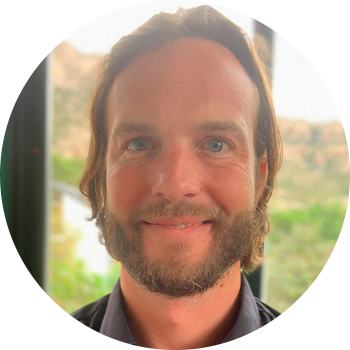
Chris Byrnes is a registered patent attorney at Calyx Law with particular interests in ethical IP licensing and IP commoning. After graduating with degrees in Physics and Religion from Denison University, he worked with academic institutions and human rights initiatives in South India and began doing art-based interfaith dialogues in the United States. He then earned a Master’s of Theological Studies in Religion, Ethics, and Politics from Harvard Divinity School, and began organizing interfaith communities to improve access to medicines and environmental sustainability. Through this work, he developed a deep interest in the politics and power of intellectual property and earned a JD from Georgetown University. After years in private practice doing patent litigation and IP risk management, Chris co-founded Corporate Accountability Lab and Performing Pro Arts Commons to conduct experiments with IP to protect human rights and the environment across global supply chains, working with artists and activists from around the world. He is an adjunct professor at IE University and a member of Chacruna’s Council for the Protection of Sacred Plants. He is based in La Pedriza, Spain.
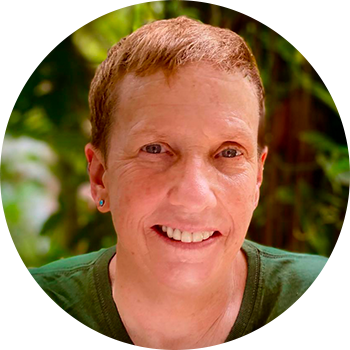
Clancy Cavnar has a doctorate in clinical psychology (Psy.D.) from John F. Kennedy University in Pleasant Hill, CA. She currently works in private practice in San Francisco, and is Co-Founder and a member of the Board of Directors of the Chacruna Institute for Psychedelic Plant Medicines. She is also a research associate of the Interdisciplinary Group for Psychoactive Studies (NEIP). She combines an eclectic array of interests and activities as clinical psychologist, artist, and researcher. She has a master of fine arts in painting from the San Francisco Art Institute, a master’s in counseling from San Francisco State University, and she completed the Certificate in Psychedelic-Assisted Therapy program at the California Institute of Integral Studies (CIIS). She is author and co-author of articles in several peer-reviewed journals and co-editor, with Beatriz Caiuby Labate, of ten books. For more information see: http://www.drclancycavnar.com

Anya Ermakova has a motley background and broad research interests combining nature conservation, ethnobotany, neuroscience and psychiatry, interweaving and connecting these diverse paths through psychedelic science. Anya worked at the forefront of psychedelic research as a science officer at the Beckley Foundation, and has provided psychedelic welfare and harm reduction services with PsycareUK and Zendo. Deep love for nature and wildlife has motivated Anya to study biology at the University of Edinburgh, while a quest to understand altered states of consciousness has prompted her to specialise in neuroscience and later continued during her PhD in psychiatry at Cambridge, where she investigated the origins of psychosis. She then worked for the NHS, developing and trialing a new psychosocial intervention for psychosis. After a brief stint as a clinical trial manager, she had decided to pursue her passion for nature, by studying Conservation Science at Imperial College London, where she researched peyote ecology in Texas, USA. Anya is working as a research consultant in London, is a member of the Council for the Protection of the Sacred Plants at Chacruna, and a board member of the Cactus Conservation Institute.
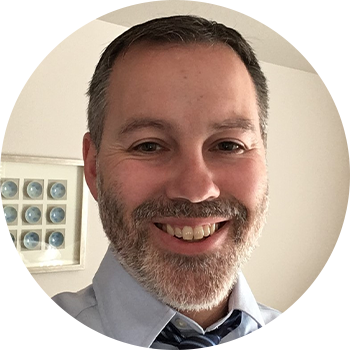
Kevin Feeney, PhD, JD, is a cultural anthropologist and lawyer currently working as a Program Director and Instructor in Interdisciplinary Studies – Social Sciences at Central Washington University. His primary research interests include examining legal and regulatory issues surrounding the religious and cultural use of psychoactive substances, with an emphasis on peyote and ayahuasca, and exploring modern and traditional uses of Amanita muscaria, with a specific focus on medicinal use and preparation practices. His research has been published in the International Journal of Drug Policy, Journal of Psychoactive Drugs, Human Organization, and Curare, among other books and journals. He is a current board member of Cactus Conservation Institute, which is dedicated to the study and preservation of vulnerable cacti and is a member of Chacruna’s Council for the Protection of Sacred Plants, and recently joined the Board of Advisors for Psyched Wellness, a Canadian health supplements company emphasizing medicinal mushrooms.
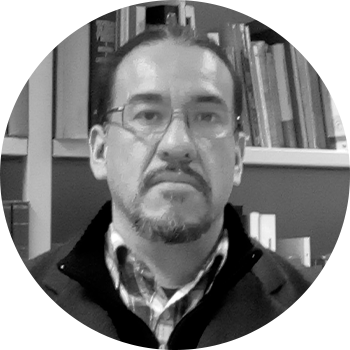
Osiris Sinuhé González Romero earned his PhD at Leiden University, in the Faculty of Archaeology-Heritage ofIndigenous Peoples. His dissertation “Tlamatiliztli: the wisdom of the Nahua people. Intercultural philosophy and right to land”, has been published by Leiden University Press. He was awarded the Coimbra Group Scholarship for Young Professors and Researchers from Latin American Universities in 2015. He has been involved in psychedelic research since 2008. He is part of the Chacruna Chronicles editorial team. He is also founder member of Via Synapsis, and academic society focused on the organization of the University Congress of Psychoactive Substances hosted by the Universidad Nacional Autónoma de México, Faculty of Philosophy since 2014. Currently he is a Postdoctoral researcher on cognitive freedom and psychedelic humanities at the University of Saskatchewan. He has been working on the book, New Essays on History and Philosophy of Psychedelics. His research interests include: philosophy of psychedelics, history of medicine, indigenous knowledge, decolonial theory, political philosophy, heritage studies, and aesthetics.
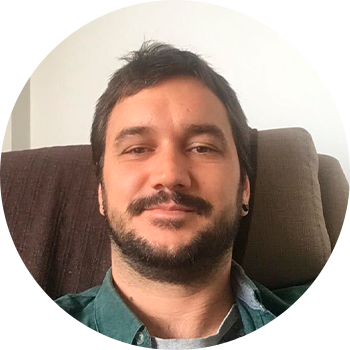
Bruno Ramos Gomes is a Brazilian psychologist, with Master’s degree in Public Health at the School of Public Health-USP, and a PhD in Public Health at University of Campinas, Brazil. In his masters, he researched the use of ayahuasca in the recovery of homeless people and drug users. In his PhD, he did a 12 month qualitative follow-up of patients treating drug dependence and depression. He has been helping patients integrate ibogaine and ayahuasca in their therapeutic processes for the last 12 years. He is a member of the ICARO (Interdisciplinary Cooperation for Ayahuasca Research and Outreach)-UNICAMP and Chacruna’s Ayahuasca Community Committee.

Allison Hoots is an attorney who has been working with religious communities using sacred plant medicines for over five years, advising churches on incorporation, operation, and legal compliance in the religious use of plant medicines and consistent with the Religious Freedom Restoration Act. She is a Of Counsel with Plant Medicine Law Group LLP; a member of Chacruna Institute for Psychedelic Plant Medicines’ Council for the Protection of Sacred Plants and is the lead author of Chacruna’s Guide to RFRA and Best Practices for Psychedelic Plant Medicine Churches; she on the Board of Directors of the Sacred Plant Alliance; and she is on the Board of Trustees and officer of a nonprofit church that uses plant medicine in prayer.
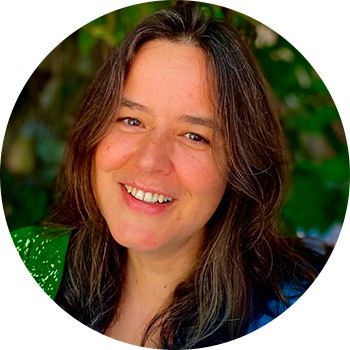
Dr. Beatriz Caiuby Labate (Bia Labate) is a queer Brazilian anthropologist based in San Francisco. She has a Ph.D. in social anthropology from the University of Campinas (UNICAMP), Brazil. Her main areas of interest are the study of plant medicines, drug policy, shamanism, ritual, religion, and social justice. She is Executive Director of the Chacruna Institute for Psychedelic Plant Medicines and serves as Public Education and Culture Specialist at the Multidisciplinary Association for Psychedelic Studies (MAPS). She is also Visiting Scholar at Graduate Theological Union in Berkeley. Additionally, she is Advisor for the Veteran Mental Health Leadership Coalition and the Soltara Healing Center. Dr. Labate is a co-founder of the Interdisciplinary Group for Psychoactive Studies (NEIP) in Brazil and editor of its site. She is author, co-author, and co-editor of twenty-eight books, two special-edition journals, and several peer-reviewed articles (https://bialabate.net).
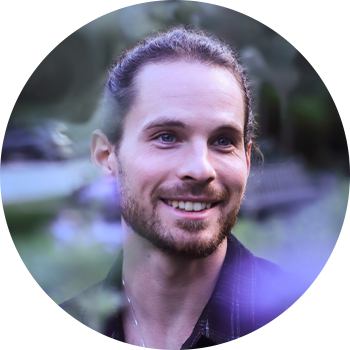
Joseph Mays, MSc, received his Master’s in Ethnobotany from the University of Kent upon researching responses to globalization by indigenous Yanesha of central Peru. After graduating with biology and anthropology degrees from Virginia Commonwealth University, he conducted an ethnobotanical survey in the Ecuadorian cloud forest and published a medicinal plant guide for the Jama-Coaque Ecological Reserve. His conservation work emphasizes how cultural-conditioning influences approaches to biocultural sustainability. Joseph is Program Director of Chacruna’s Indigenous Reciprocity Initiative of the Americas, where he conducts research and builds connections with small Indigenous communities throughout the Americas to support Chacruna’s mission of increasing cultural reciprocity in the psychedelic space.

Sean McAllister is one of nation’s leading drug policy reform lawyers. Sean has pioneered legal and business strategies for entrepreneurs in the cannabis, hemp, recycling, and psychedelics spaces. His work in the psychedelic space has included advising religious organizations on their rights to use psychedelics as sacraments, seeking DEA licensure for a public company manufacturing psilocybin for clinical trials, helping psychedelic assisted therapists understand the risks of these activities, advising on what is legal in decriminalized cities, and understanding new state regulatory laws like Oregon’s Measure 109. Sean’s work on drug policy reform goes back 25 years, starting on the Colorado Prison Moratorium Campaign in the mid-1990s. From 2004-2012, Sean served the chair of the Board of Directors of the organization that ran the Colorado recreational marijuana legalization campaign that voters ultimately approved. Sean has also worked on broader drug policy reform issues as a member of the Colorado Commission on Criminal and Juvenile Justice. Sean is an appointed member of the Denver Psilocybin Mushroom Policy Review Panel, which was the first ballot initiative in the U.S. decriminalize the possession, cultivation and storage of psilocybin. Sean has been a legal advisor to other cities and states considering psychedelic decriminalization efforts, including the Decriminalize California campaign in 2020 and Decriminalize Seattle in 2021. Sean is Chair of Board of Directors of the Chacruna Institute for Psychedelic Plant Medicines, and member of Chacruna’s Council for the Protection of Sacred Plants.
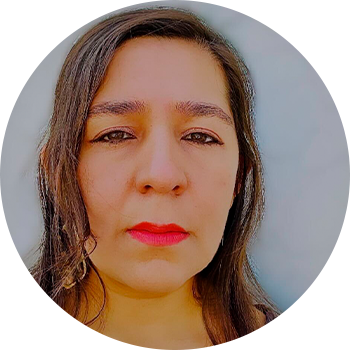
Dr. Nidia A. Olvera Hernández is a historian and anthropologist. She has a Ph.D. in modern and contemporary history at the Mora Institute in Mexico City. Nidia earned a bachelor’s degree in ethnohistory from the National School of Anthropology and History (ENAH) and a masters in social anthropology from the Center for Research and Higher Studies in Social Anthropology (CIESAS), in Mexico City. Her main areas of interest are the old and modern history of psychoactive substances and drug policy. She is co-editor with Bia Labate of the book Plantas Sagradas en México: tradición, religión y ritualidad [Sacred Plants in Mexico: Tradition, Religion and Ritual, COLSAN/Chacruna Institute 2023] and author of several peer-reviewed articles. She has worked like a Project Coordinator at the United Nations on drug treatment program, has experience working on social research consultancies and like professor at the Autonomous University of Mexico City and ENAH. Currently she is Associate Director at Chacruna Lationoamérica in Mexico.
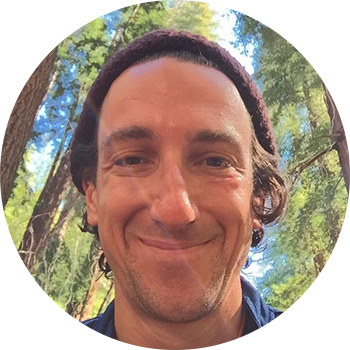
Graham Pechenik is a registered patent attorney, and the founder of Calyx Law. He has a BS from UC San Diego, where he chose his Cognitive Neuroscience and Biochemistry majors after his first psychedelic experiences inspired deep curiosity about the bases for changes in consciousness, and a JD from NYU, where he initially pursued interests in bioethics and cognitive liberty. After a decade at large law firms representing companies in the agricultural, chemical, pharmaceutical, biotech, and technology industries, including litigating patents at trial and on appeal, Graham started Calyx Law to work with cannabis and psychedelics ventures. Graham is also editor-at-large of Psilocybin Alpha, where he writes about psychedelics IP, provides data for patent trackers, and helps maintain a psychedelics legalization and decriminalization tracker, and he is a member of Chacruna’s Council for the Protection of Sacred Plants. He was raised in Oakland, CA, and currently lives in San Francisco.
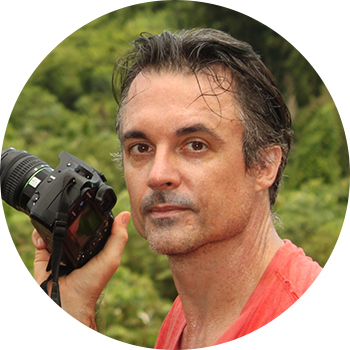
Glenn H. Shepard Jr. is an ethnobotanist, medical anthropologist and filmmaker who has worked with diverse indigenous peoples of Latin America, especially in Amazonia. He earned his undergraduate degree at Princeton University and completed his doctorate in Medical Anthropology at the University of California at Berkeley in 1999. His research interests include ethnobotany, medical anthropology, shamanism, sustainable resource management, visual anthropology and the territorial rights of isolated peoples. Publications include research articles, commentary and reviews in Nature (1998, 2009), Science (2003), Science Advances (2016), American Anthropologist (2004, 2012), Economic Botany (2008, 2011), Conservation Biology (2007), PLoS One (2015, 2015) and the New York Review of Books (2014, 2015, 2019). His work in the Amazon has been featured in news stories in National Geographic (2016) The New Yorker (2016, 2019) and the Financial Times (2019). He has participated in the production of several films, including the Emmy-Award-winning documentary, Spirits of the Rainforest, as well as Zapatista Memories, which debuted in 2016 at the Margaret Mead Film Festival. He is a tenured staff researcher in the Human Sciences Division at the Goeldi Museum in Belém, Brazil, where he curated the ethnographic collections from 2009-2013 and co-chaired the Division from 2014-2016, and currently sits on the Advisory Board of the Chacruna Institute for Psychedelic Plant Medicines. He blogs at Notes from the Ethnoground (http://ethnoground.blogspot.com/).
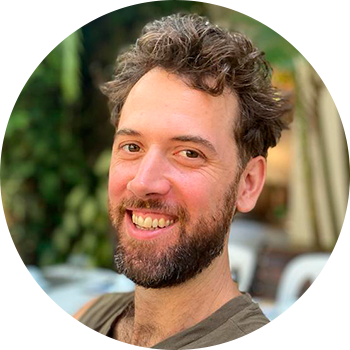
Nicholas Spiers is a queer anthropologist and documentary filmmaker. He has a Master’s degree in visual anthropology from the University of Barcelona and is interested in the sensory experience of audiovisual mediums. He has lived for several years in Mexico doing fieldwork in the Sierra Mazateca, and is currently based in Portugal. He is Chacruna’s research coordinator, creating content incorporating different cultural perspectives and disciplines to approach challenging discussions in the psychedelic community. He is the lead author on Chacruna’s Indigenous Psilocybin Mushroom Practices: An Annotated Bibliography (Journal of Psychedelic Studies, in 2024). He also produces compelling videos and multimedia materials. With Bia Labate he co-directed the documentary web series The Peyote Files, and created the educational video Chacruna Debunks 6 Racist Myths from the Psychedelic Community. He has created an award-winning series about the psychoactive plant Salvia divinorum. He co-founded Agua de Rayo, a non-profit civil organization based in Mexico’s Sierra Mazateca, which is invested in visual ethnography and community projects and which also has an interest in Mazatec psychoactive plant use.
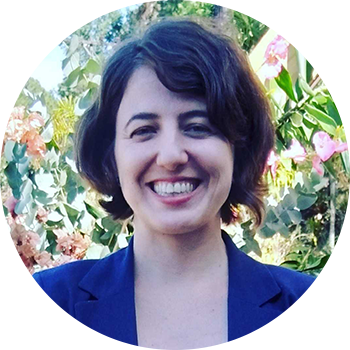
Lígia Duque Platero is Chacruna’s Education Program Associate. She is a queer, cisgender Brazilian woman. She has an interdisciplinary background in history, anthropology and Latin American studies. She holds a bachelor’s degree in history (2005) and a history teacher training qualification (2006) from the University of São Paulo (USP), in Brazil. She has a master’s degree in Latin American Studies from the National Autonomous University of Mexico (UNAM – 2012) in Mexico City, addressing public policies in relation to Indigenous peoples and Indigenous education in Brazil and Mexico from the 1940s-1970s. She has a doctorate in humanities, with an emphasis on cultural anthropology (2018), from the Federal University of Rio de Janeiro (UFRJ), in Brazil. Her PhD looked at the cultural transformations and exchanges amid the alliance between the Yawanawá Indigenous people and an urban church of Santo Daime. Her main research focus areas are: ayahuasca, Santo Daime, sacred plants, shamanic tourism, Yawanawá (Pano) people, Indigenous policies and human rights in Brazil and Mexico. She is a research associate at the Interdisciplinary Group for Psychoactive Studies (NEIP) and at the Laboratory for the History of Religious Experiences (UFRJ/IFCS) in Brazil.
Take a minute to browse our stock:
Did you enjoy reading this article?
Please support Chacruna's work by donating to us. We are an independent organization and we offer free education and advocacy for psychedelic plant medicines. We are a team of dedicated volunteers!
Can you help Chacruna advance cultural understanding around these substances?









